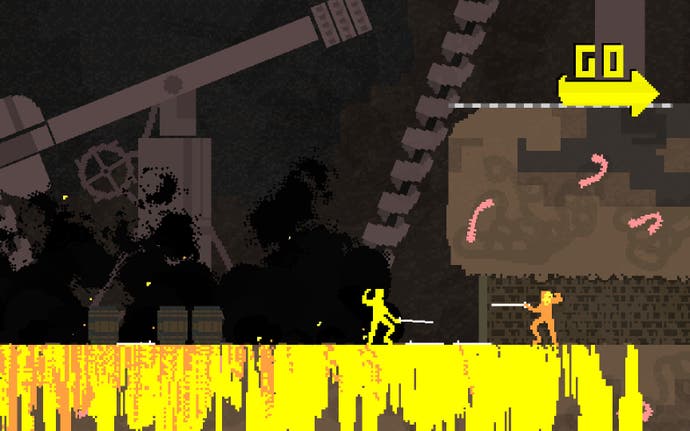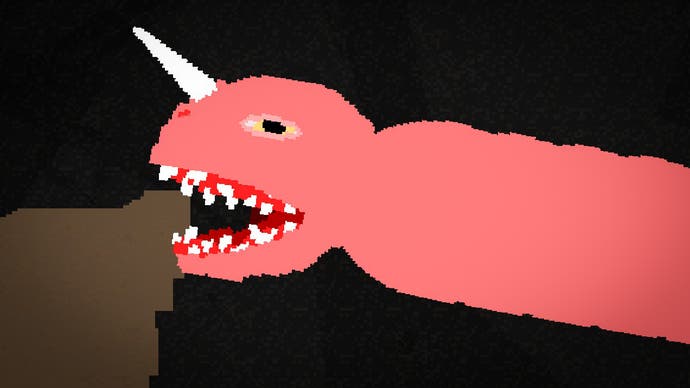What we've been playing
A few of the things that have us hooked this week.
1st December, 2023
Hello! Welcome back to our regular feature where we write a little bit about some of the games we've found ourselves playing over the last few days. This time: fencing, cameras, and Mario.
If you fancy catching up on some of the older editions of What We've Been Playing, here's our archive.
Super Mario RPG, Switch
As a Mario and Squaresoft fan in Europe, this has been a long time coming. Yes, I know Super Mario RPG was released on the Wii here, but I've been desperate to play this game for at least two decades. And it was worth the wait.
What I love most about the game is how authentically Mario it is: Mario from the 90s. The squidgy faces, the vibrancy of the Mushroom Kingdom, the chiming sound effects and boooiiiing of Mario's jump. This is the Mario I remember from my childhood - from playing Mario Land 2 on my Game Boy, from watching the cartoons - but now stretched into three dimensions, into a fully explorable world that feels so rich and pure.
Yes, there are plenty of negatives if I'm being picky. It's too short. It's too easy. Combat is too simplistic - I often found myself skipping past battles. And the pacing is a little off, racing through early stages and then padding out the adventure later on.
But who really cares with a game this colourful, this charming, this cheerful. It's a joyous, breezy little quest I would've absolutely adored as a kid. Now I've enjoyed it as an adult instead.
-Ed
Lubitel 166
This week I've been playing the game of learning how to use a TLR camera. Those are the deeply hipsterish devices with twin lenses - the kind of film camera you look down into in order to compose your shot.
Hasselblads are the king here - the camera that went to the moon with the astronauts. The one I yearn for is a bit cheaper - a Yashica, a Japanese make with a storied history and a lovely build quality. The one I actually have, though, because it was in my price range, is a Lubitel: it's a plasticky Russian TLR from the 1980s that has a cult following because of its low price point, relative availability, and lovable quirks.
What's fascinating about the Lubitel - about TLRs in general - is that you have to do everything. Nothing is automatic, apart from the lovely, whirring timer mechanism. You have to choose aperture and shutter speed. You have to load the film in a wonderfully all-thumbs manner. And you have to advance the film each time you take a shot. It doesn't auto advance.
It's a bit like playing a game - or rather, it's a bit like learning how to play one of those forever games like League of Legends or Civ. At the moment, the game I'm playing is: accidental double-exposures. But I will get there I hope. And if I ever actually take a good picture I'll share here.
-Donlan
Nidhogg, PC

A friend - Gamer Network founder Rupert Loman, actually - recently got an arcade cabinet as a birthday present from his brother, and as he was putting it together, his brother asked me for some recommendations for games. There were the obvious ones - the ones Rupert and I grew up playing - but there was also space for some new ones. And one I had no trouble recommending right away was Nidhogg.
It's a strange thing, Nidhogg. It's got a strong air of game jam about it - I think maybe it grew out of one. The idea and the execution are super simple: it's a two-player fencing game played in two dimensions and with only two controls, really. You can move left and right, you can jump, and you can raise and lower your fencing sword, and you can strike. That's it. No one needs to explain Nidhogg to you - you pick it up and you know how to play in 10 seconds.
The skill comes in as you begin to start actually fencing in the game, moving your épée up and down as the other opponent is about to strike, in order to parry them and possibly disarm them, leaving them open for the kill. Or, as you feint an attack and then switch positions to circumvent their guard. Or, as you surprise them with a flying kick, or a roll and a strike, or a cartwheel and a strike. There's surprising depth under its apparent simplicity, but never enough that a newcomer can't get lucky and win. It's always accessible.
What really makes Nidhogg memorable, though, is the way it's put across. It's turbo-charged in terms of the speed it moves at, and garishly coloured and surreal in how it looks. And the more your foil finds its mark, the more orange and yellow 'blood' spurts over the level to coat the floor. Then it all comes to a close when the eponymous Nidhogg - the world serpent of Norse legend - flies through the air to gobble up the victorious fighter at the end.
What's going on? I don't think it matters. What matters is that it's immediate, irresistible, fun.
-Bertie

